
Average daily gasoline production stands at 102m liter
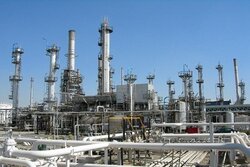
Jalil Salari also said the average daily gasoline consumption has risen 15 million liters to 90 million liters in the current month, after easing the coronavirus restrictions.
Having the production capacity of nearly 120 million liters per day of gasoline, Iran currently has also the capacity to storage three billion liters of the strategic fuel.
Although the Islamic Republic is currently self-sufficient in gasoline production, fluctuations in consumption at different periods through the year have led to the creation of storage facilities across the country to manage the sustainable supply and distribution of gasoline.
These tanks will help the country’s refineries continue operating at full capacity if on certain days of the year (such as the Nowruz holidays) gasoline consumption reduces significantly, and also prevent any interruption in the supply of the fuel if consumption increases drastically.
In this regard, the capacity of the country’s gasoline storage facilities has increased in recent years, so much so that according to the National Iranian Oil Products Refining and Distribution Company, the volume of gasoline storage has increased from 1.8 billion liters to more than three billion liters.
According to the former NIORDC Managing Director Alireza Sadeq-Abadi, Iran is currently the biggest producer and exporter of gasoline in West Asia.
The country has achieved this success despite the external pressures and hurdles imposed by the U.S. sanctions on its oil industry, Sadeq-Abadi said back in January.
According to the deputy oil minister, the significant increase in the country’s gasoline production and exports comes despite the fact that nearly two years ago Iran was an importer of the strategic product, shipping in 17 million liters per day of gasoline.
“In [the Iranian calendar year] 1396 (ended on March 20, 2018), the production of gasoline in our country was 59 million liters per day; the figure reached 107 million liters per day last year, and today the country’s gasoline production capacity is between 107 to 120 million liters per day,” the official said.
Source: Tehran Times


Alba Discloses its Financial Results for the Second Quarter and H1 of 2025

US slaps tariffs on 1-kg, 100-oz gold bars: Financial Times

Copper price slips as unwinding of tariff trade boosts LME stockpiles

Codelco seeks restart at Chilean copper mine after collapse

NextSource soars on Mitsubishi Chemical offtake deal

Australia weighs price floor for critical minerals, boosting rare earth miners

Uzbek gold miner said to eye $20 billion value in dual listing

BHP, Vale offer $1.4 billion settlement in UK lawsuit over Brazil dam disaster, FT reports

Hudbay snags $600M investment for Arizona copper project
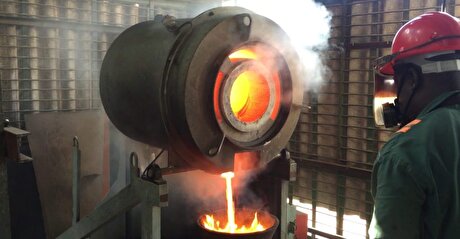
Zimbabwe labs overwhelmed as gold rally spurs exploration, miner says

Cochilco maintains copper price forecast for 2025 and 2026
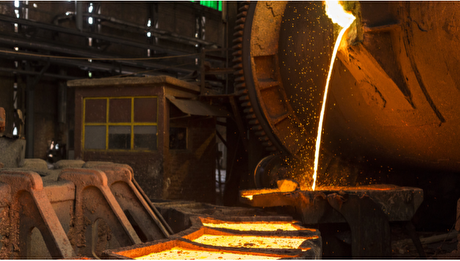
Adani’s new copper smelter in India applies to become LME-listed brand

HSBC sees silver benefiting from gold strength, lifts forecast
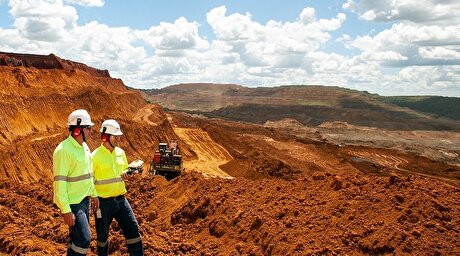
Mosaic to sell Brazil potash mine in $27M deal amid tariff and demand pressures
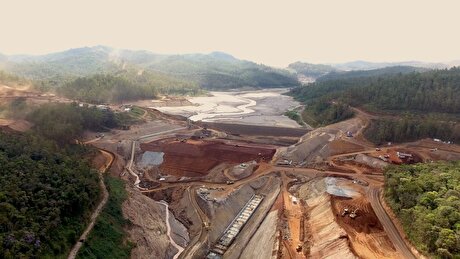
Samarco gets court approval to exit bankruptcy proceedings

Hudbay snags $600M investment for Arizona copper project

Discovery Silver hits new high on first quarterly results as producer

Trump says gold imports won’t be tariffed in reprieve for market

AI data centers to worsen copper shortage – BNEF

Cochilco maintains copper price forecast for 2025 and 2026

Adani’s new copper smelter in India applies to become LME-listed brand

HSBC sees silver benefiting from gold strength, lifts forecast

Mosaic to sell Brazil potash mine in $27M deal amid tariff and demand pressures

Samarco gets court approval to exit bankruptcy proceedings

Hudbay snags $600M investment for Arizona copper project

Discovery Silver hits new high on first quarterly results as producer

Trump says gold imports won’t be tariffed in reprieve for market

AI data centers to worsen copper shortage – BNEF
















